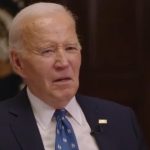From Linthicum v. Wagner, decided Wednesday (correctly, I think) by Judge Ann Aiken (D. Ore.):
The Oregon Constitution requires that each chamber of the Oregon legislature have a quorum of two-thirds of the members to conduct business. Or. Const. art IV, § 12. In recent years, the legislature has been intermittently paralyzed by walkouts in which members of the minority party absent themselves to deny the legislature a quorum.
In response to these walkouts, Oregon voters overwhelmingly approved Measure 113 in 2022 to amend the Oregon Constitution to penalize excessive absences by legislators. Following the passage of Measure 113, Article IV, section 15 of the Oregon Constitution was amended to read as follows:
Either house may punish its members for disorderly behavior, and may with the concurrence of two thirds, expel a member; but not a second time for the same cause. Failure to attend, without permission or excuse, ten or more legislative floor sessions called to transact business during a regular or special legislative session shall be deemed disorderly behavior and shall disqualify the member from holding office as a Senator or Representative for the term following the election after the member’s current term is completed.
Beginning on May 3, 2023, a group of Oregon state senators belonging to the minority party staged a walkout which deprived the chamber of a quorum…. The walkout lasted until late June 2023 and, by the time it came to an end, ten state senators, including the Senator Plaintiffs, had accrued more than ten unexcused absences. The state senators were disqualified from running for reelection based on Measure 113 and a challenge to that determination is currently pending before the Oregon Supreme Court….
For purposes of this motion [for a preliminary injunction, the parties focus their dispute on … whether participation in the legislative walkout by the Senator Plaintiffs is constitutionally protected activity. The First Amendment “has no application when what is restricted is not protected speech.” … [T]hese walkouts were not simply protests—they were an exercise of the Senator Plaintiffs’ official power and were meant to deprive the legislature of the power to conduct business.
Whether the legislator is present in the chamber to debate and vote on a bill or absents themselves from the chamber to deny a quorum, both actions are alike in that they are an exercise of the power of the legislator’s office. The Supreme Court has held that performing the functions of a legislator are not a personal prerogative but are instead a public trust. In Nevada Commission on Ethics v. Carrigan (2011), the Supreme Court held that “a legislator’s vote is the commitment of his apportioned share of the legislature’s power to the passage or defeat of a particular proposal,” and “[t]he legislative power thus committed is not personal to the legislator but belongs to the people; the legislator has no personal right to it.” Put more plainly, “the procedures for voting in legislative assemblies pertain to legislators not as individuals but as political representatives executing the legislative process.”
In consequence, the Supreme Court “rejected the notion that the First Amendment confers a right to use governmental mechanics to convey a message” and held that “a legislator has no right to use official powers for expressive purposes.” “Moreover, the fact that a nonsymbolic act is the product of deeply held personal belief—even if the actor would like it to convey his deeply held personal belief—does not transform action into First Amendment speech.”
The facts in Carrigan involved a legislator being prevented by a recusal law from voting or speaking on a particular matter before the state legislature. However, the same rationale can be applied to provisions which are intended to compel attendance at the legislature. Indeed, the United State Congress is empowered by the Constitution itself to “compel the Attendance of absent Members, in such Manner, and under such Penalties as each House may provide.” U.S. Const. Art. I, § 5. It has been long recognized that these penalties may be as severe as arrest and imprisonment.
The Supreme Court has held that “[a] universal and long-established tradition of prohibiting certain conduct creates a strong presumption that the prohibition is constitutional.” If no less a body than the United States Congress may compel the attendance of its members by imprisonment without running afoul of the First Amendment, then the Court cannot see how a lesser penalty, such as temporary disqualification, or the threat of temporary disqualification, for the same conduct would constitute a violation of the free speech rights of the Senator Plaintiffs.
In sum, the Court concludes that the use of legislative walkouts is not constitutionally protected activity for purposes of the Free Speech Clause of the First Amendment and so, on this record, Plaintiffs have not established either a likelihood of success on the merits or serious questions going to the merits of their claim for First Amendment retaliation….
Anuradha Sawkar, Brian Simmonds Marshall, and Thomas H. Castelli represent defendants.
The post Legislators Don’t Have First Amendment Right Not to Show Up to Legislature appeared first on Reason.com.





